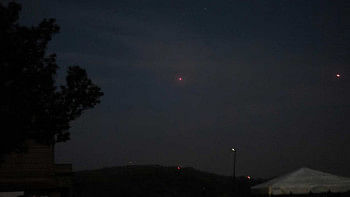Dargi Abdul Wahab: A litterateur pushed to penury in his twilight years

Dargi Abdul Wahab
Dargi Abdul Wahab, an avid and prolific litterateur and a history and culture researcher, still reads his own and other author's writings. However, at the ripe old age of 80, he has slowed down and various old age complications have compelled him to give up writing.
Some of Dargi's writings like Mymensingher Charitabitan, Bangha Dhara, and Mymensingh Anchaler Yaitihashik Nidarshan (Historical Relics of Mymensingh Region) have earned him much fame. Today he leads a spartan existence at his home in the Goulpukurpar area in the district town.
Not surprisingly, he has been honoured by local organisations on various occasions. “Despite being a simple government employee of Mymensingh Collectorate, I have received honours from high officials, the local elite and common people. I suppose this is far more than a simple man like me deserves from society,” says the immensely talented and modest writer with satisfaction.
Born in 1929 in village Krishna Moheshpatti, Phulpur upazila of Mymensingh district, Dargi Wahab, son of late Abbas Ali and Acharen Nessa, passed his Matric examination (now SSC) from Phurbadhala Jagatmoni High School in 1947. He went on to pass his Intermediate examination from local Government Ananda Mohan College in 1950. Later he joined the Dhaka Collectorate as office assistant in 1953. He was transferred to the Mymensingh Collectorate in 1959 and continued his service here until his retirement in 1987.
“My devotion for literature grew after one of my poems was published in the annual magazine of Narayanganj Tolaram Government College in the course of my service in Dhaka Collectorate. That inspired me greatly and I began writing more in my free hours,” says Dargi.
Later he went on to write several books including Mymensingher Charitabitan, a book on the history and culture of Mymensingh, Bangha Dhara, Historical Relics of Mymensingh Region, Shaat Nori, Isha Khan, Mymensingh Monisha, Pancha Rathi, Origin and Development of Bengali Nationalism.
Of these, Mymensingher Charitabitan, Bangha Dhara and Historical Relics of Mymensingh Region have been published so far. All the three books have won appreciation in many quarters. Mymensingher Charitabitan, a large volume, contains a detailed description of the history, culture and proud sons of this region of different ages. This too has earned him laurels. However, most of his writings still await publication as Dargi is beset with financial difficulties. The published copies have run out but he can not afford to publish second editions.
All my manuscripts cannot be published in my lifetime as I can ill afford to invest the Taka 2,00000 that is required,” says a despondent Dargi. “ I head a family of six, including two mentally impaired children--a son and a daughter. Besides old age complications have compelled me to give up writing,” he adds.
Dargi's family also faces a financial crisis as the family is run on Dargi's paltry income, including Taka 1,800 as pension.
Dargi has been honoured by various local organisations, including Mymensingh Press Club, Mymensingh Shahitya Sangsad, Sammillito Sangskritik Jote, Sukrabashario Sahitya Sangsad and Mukta Batayan. Unfortunately, similar honours have not come his way at the national level.
“Dargi Wahab has enriched Bengali literature through his writings. We should join hands to help him out as he faces an acute financial crisis in his old age,” says Mohammad Nawab Ali, a veteran journalist.
Dargi Wahab laments the continuous assault on our culture. “Our rich cultural heritage such as Jari Gaan, Sari Gaan, Kabi Gaan, Bhatiali, Marfati, Murshidi and Baul songs are quickly going into oblivion,” he asserts.
He has a dream-- a non-communal Bangladesh enriched with traditional Bengalee culture and free of hunger and illiteracy.

 For all latest news, follow The Daily Star's Google News channel.
For all latest news, follow The Daily Star's Google News channel. 



Comments